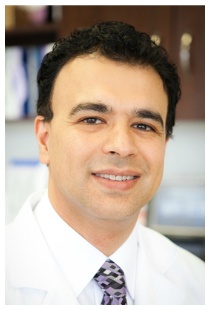Dermatology Skin Surgery at TXID Skin Cancer Clinic in San Antonio, Boerne
Skin Surgery:
Our staff at the TXID Skin Cancer Clinic in San Antonio and Boerne utilize the latest technology in dermatology, laser, and skin surgery combined with detailed attention to patient care. At Texas Institute of Dermatology, Laser and Cosmetic Surgery we want you to have an excellent outcome to feel that your needs and concerns have been promptly addressed in a caring and sensitive fashion. The Institute is ranked among the top dermatology centers in San Antonio and Boerne based on satisfaction surveys and peer reviewed organizations. We strive diligently to ensure your satisfaction, comfort, privacy, and safety. All treatments are supervised or performed by renowned dermatologists who have many years of successful experience in a large variety of procedures. Many treatment modalities are available, and we can recommend the one or two that will best meet your needs. We’re here to meet your needs for treating Skin Cancer and help you achieve the look you desire.
Various Types of Skin Surgery:
- Removal of Skin Lesions and Tumors
- Excision of Cysts
- Nail Surgery
- Pigmented Lesions
Before the skin surgery:
- you are taking any blood thinning agents such as : Warfarin, Coumadin, Vitamin E, Aspirin, Fish Oil or Green Tea
- You have any prosthetic device
- You have a history of valvular heart disease
- You are sick or not feeling well for any reason(s)
It is important to let your Dermatologist perform a full body exam before the surgery, especially if you have a personal or family history of Melanoma or skin cancer such as Basal Cell Carcinoma, Squamous Cell Carcinoma. Our dermatologist will examine your scalp, eyes, mouth, lips, face and neck followed by upper extremities, nails, trunk, and lower extremities. Remove all nail polish from your nails if you have a suspicious pigmented (dark) spot on your nails. In order to get a more accurate image of your mole, Dr. Ghohestani may look at your moles through a Dermatoscope.
Book an appointment:
You may schedule an appointment by calling our office or sending an email:
Call 210-698-6777
Email to: [email protected]
What’s New about Skin Cancer?
New Study Finds Increased Tumor Growth Associated With Increased Delay in Seeking Skin Cancer Treatment:
Denial is the top reason patients delay treatment.
SCHAUMBURG, ILL. (Nov. 12, 2010) – If detected early, nonmelanoma skin cancers (primarily basal cell and squamous cell carcinomas, the two most common forms of skin cancer) can be easily treated. But when left untreated, these skin cancers can grow and even spread, causing considerably more harm than if they were treated upon initial detection. Now, a new study finds that denial is the top reason why patients delay seeking treatment for skin cancer and shows that this delay results in larger, more serious skin cancers. In the article entitled, “Delayed Treatment and Continued Growth of Nonmelanoma Skin Cancer,” published online in the Journal of American Academny of Dermatology, dermatologist Murad Alam, MD, MSCI, FAAD, chief of cutaneous and aesthetic surgery, and associate professor of dermatology, otolaryngology, and surgery at Northwestern University, Chicago, presented results of a study examining why patients delay seeking medical attention for suspicious growths and the consequences of their procrastination.
“Studies show that various patient-specific factors appear to be responsible for the delay in the treatment of cancers in general, and skin cancer in particular,” said Dr. Alam. “The purpose of this study was to determine the patient- and physician-specific reasons, including physical, financial, social, intellectual, and psychological factors, to which patients attribute delays in the diagnosis and treatment of nonmelanoma skin cancers.”
Patients reported that denial was the most frequent reason for waiting to see a doctor about a suspicious lesion – accounting for 71 percent of all cases. Specifically, the two most commonly listed reasons why patients waited to see their doctor were “thought it would go away” (36 percent), and “thought it wasn’t important” (24 percent).
“Denial may be a normal response to health concerns, with patients minimizing the psychological burden of their illness, or it may be a learned coping mechanism,” said Dr. Alam. “But denial can interfere with obtaining treatment and result in more serious or advanced skin cancers.”
When analyzing the association of delay with the size of a skin cancer from the time patients first realized that they had a problematic lesion to the time they saw a physician, Dr. Alam found that there was a significant increase in tumor size in patients who waited an average of six months to see a physician. On average, skin cancers grew during this delay period, with the average lesion enlarging from the size of a pimple (2-3 mm) to between the size of a pimple and a dime (10 mm). The longest reported delays were associated with relatively greater increases in tumor sizes.
“Delayed treatment of skin cancer may result in tumor enlargement, loss of function in affected areas, and the need for larger excisions that may impact a person’s appearance and mobility,” noted Dr. Alam. “That is why dermatologists encourage everyone to perform regular skin exams and report suspicious lesions to a dermatologist as soon as possible.”
Dr. Alam stressed that it is important for patients to understand that early diagnosis and treatment of skin cancer can lead to simpler surgeries, smaller scars, and decreased illness. If a patient has a suspicious lesion, he or she should make an appointment to see a dermatologist as soon as possible.






